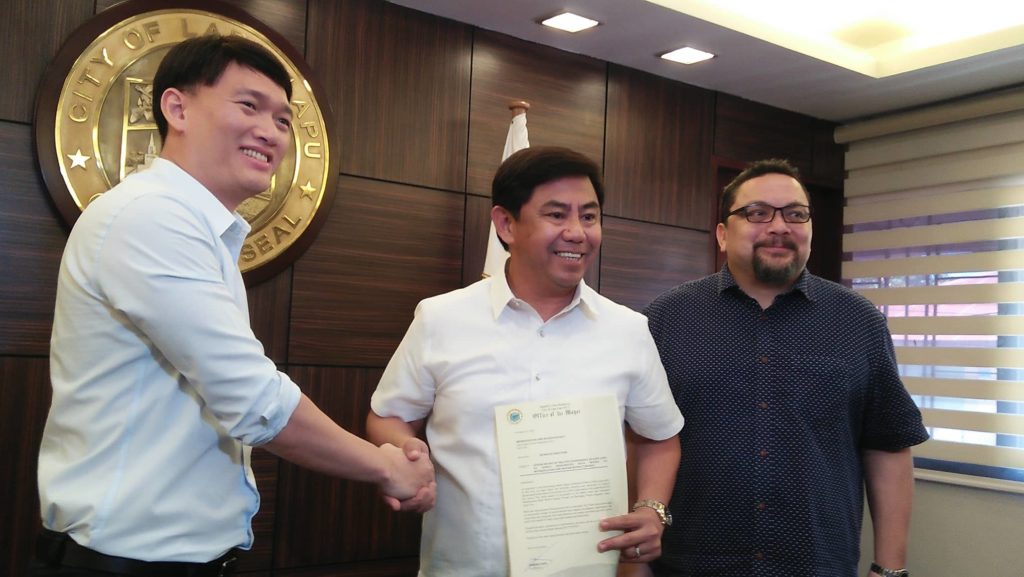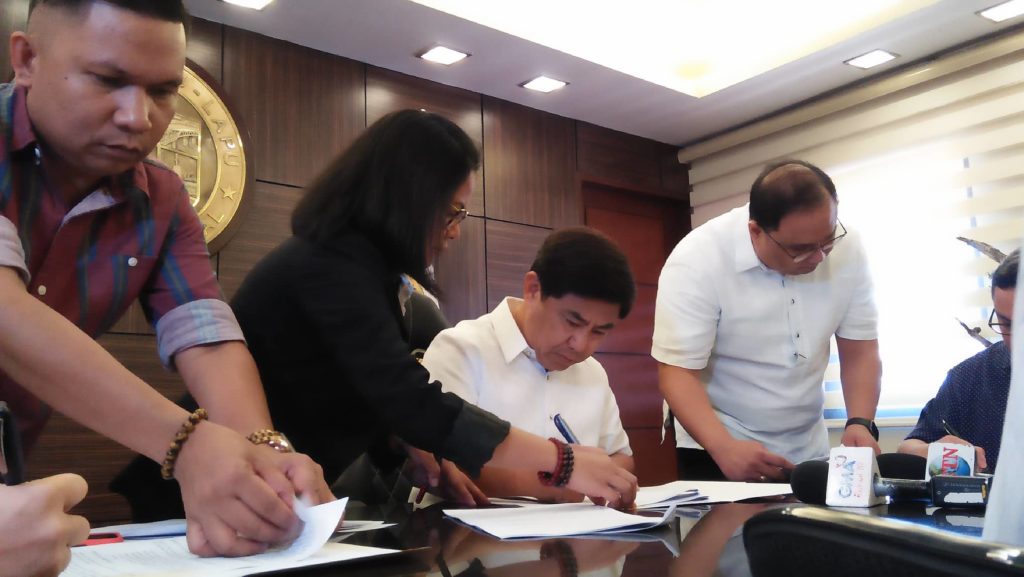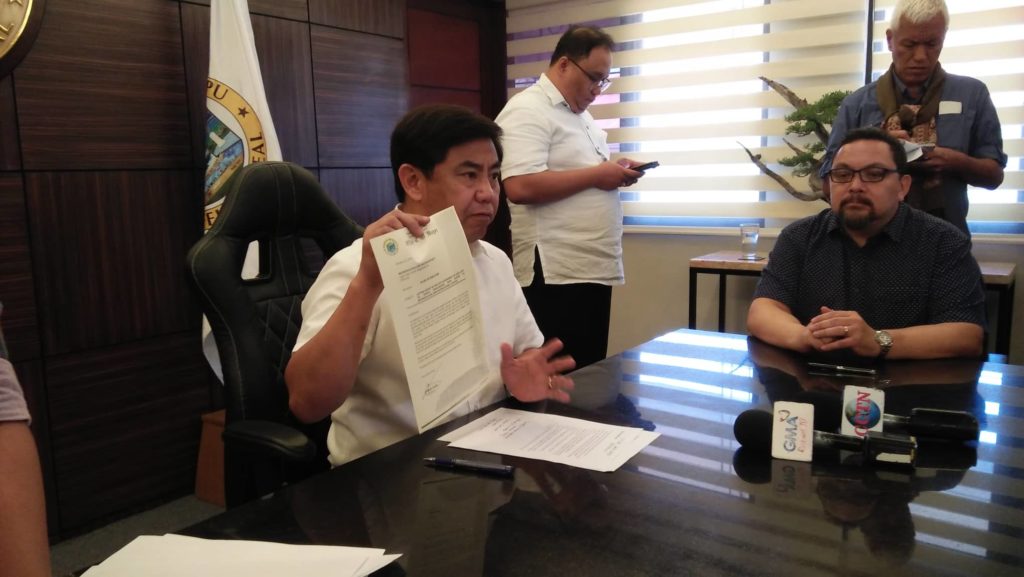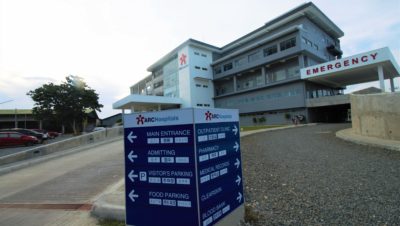Lapu-Lapu City And CS Water Re-Affirmed Partnership To Resolve Water Shortage

The signing of the memorandum of agreement (MOA) between mayor Junard “Ahong” Chan and the CS Water corporation executives such as Chairman Oliver Tan and President Jose Antonio Soler took place last October 22 at the Mayor’s office in Lapu-Lapu City.
The MOA signing re-affirmed the city’s joint venture with the private sector for the proposed construction and operation of two bulk water desalination plants that can supply 60,000 cubic meters of safe and potable drinking water to the city. CS water is the brand name of the joint venture company, Citicore Summa Water Corporation, to represent all of its projects which include the Desalination project in Lapu-Lapu City.
The original contract for the said P3.5 billion-peso project was signed by the previous administration on June 2019, and incognizant of the water shortage problem, Mayor Chan instructed his lawyers to make a thorough and well-covered review of the contract so that the revised project may commence and benefit the Oponganons while protecting the interest of both parties, Citicore and the city of Lapu-Lapu, itself. According to the city’s chief executive, this partnership project will entail no cost to the government and will start its operations after an 18-month construction period which will probably take effect by mid-December this year, inclusion of the groundbreaking and installation of the pipelines in Barangay Marigondon and Barangay Punta Engaño—the latter barangay being known for having scarce water supply. CS Water, however, assured the public that the allocated time for the construction can be shortened if all necessary permits will be prepared sooner. “The project can be fast-tracked depending on the situation,” said its President and CEO, Jose Antonio Soler.
The targeted amount of water supply that the project will provide to the city through Metro Cebu Water District (MCWD) is 60,000 cubic meters but an initial 25,000 cubic meters per day will first be distributed and the additional amount will follow once the project is completed in about a year and a half given that the plan is modular which means that, as the water is delivered, more pipes can be gradually added.

Mayor Chan admits that the water crisis in the city affects its image as the province investment hub as Lapu-Lapu is home to most of the high-end resort hotels in the province. “This is Lapu-Lapu City’s response to the current water crisis that the city and its residents are facing. By partnering with investors that are experts in water supply technologies, our constituency can be assured that the local government is doing its best to help solve the problem sooner than late,” he stated. “Let’s help MCWD for them to serve their consumers and set aside political differences such as what happened with MCWD Board and the Mayor of Cebu City.” continued the city mayor with regards to the on-going conflict between the two parties that don’t seem to resolve the water crisis.
Part of the shortage has been blamed on the intrusion of chloride and saltwater into groundwater reservoirs.
CS Water President, Jose Antonio Soler explained that the new facilities will use desalination technology to convert seawater to potable water. “We use state-of-the-art technology in extracting potable water from the sea without any detrimental impact on the environment. We support the efforts of Lapu-Lapu City towards water supply resiliency. Our experience in handling, expansion, rehabilitation, operations, and management of desalination plants across the country should assure Oponganons that they will get the best that technology has to offer.”

The local government unit of Lapu Lapu will receive a royalty for all sales made by Citicore and instead of a flat rate as stipulated in the original MOA, royalty is now prorated relative to the price of sale. The higher the price, the higher the royalty. Generally, this new contract privileges the Oponganons while the City earns more through royalty.
comments are temporarily disabled.














